M. Night Shyamalan‘s biggest strength as a director is his ability to orchestrate and sustain tension. It’s what makes The Sixth Sense so extraordinary – not the famous twist, but the subtle, inexorable power and pull the movie has. The film is also helped by two very strong performances, and Shyamalan wisely anchors the film on Bruce Willis and Haley Joel Osment‘s work.
The Sixth Sense is an all-timer because all the variables fit into place in a unique but satisfying way. Sure, the twist is a lot of fun, but I think its sticking power is based around more than that.

Here’s the thing about Knock at the Cabin, Shyamalan’s latest film, based on the novel The Cabin at the End of the World by Paul Tremblay – a lot of those same variables are present. It’s got powerful performances – not a weak link in the bunch, in fact. The tension that Shyamalan excels at is there too – there are sequences in the film’s midsection that may be among the best that Shyamalan has ever done, and it’s all in a confined space and location.
Shyamalan has an enviable skill that I wish more filmmakers had – he knows how to work around self-imposed restrictions and make those restrictions work for him. He knows, correctly, that the audience will happily fill in the gaps if you let them, and his best films have always been about making the audience feel as if they discovered the secret, rather than overtly showing them the manipulating strings behind the puppet show.
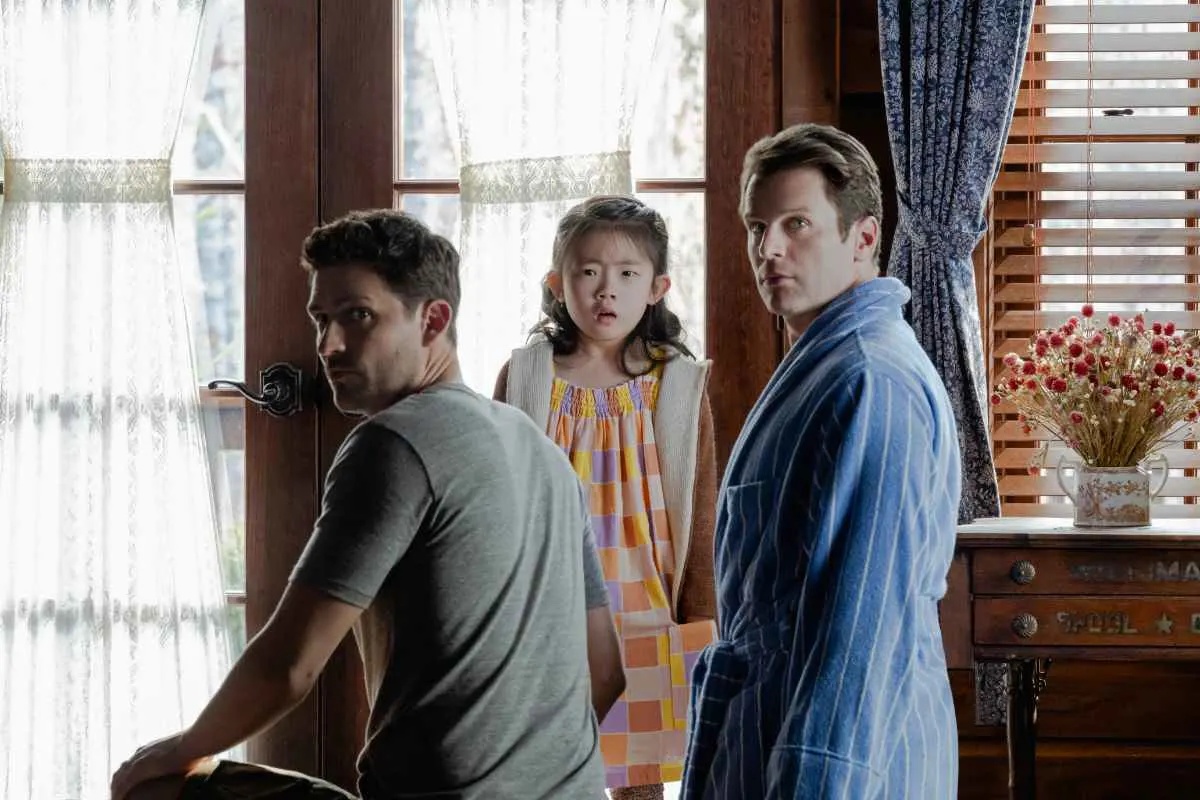
So why does Knock at the Cabin fall apart in its last act? Is it an expectation for something that never comes? Is it because the film spells out what the audience should have been able to deduce for themselves? Are we shown too much? Or not enough?
It’s vague and frustrating, because for so much of the film I was right there with every turn and reveal of the plot. Shyamalan, when adapting other material, has often changed the story around, and it’s not always a better fit — his Avatar: The Last Airbender should have never left the storyboard stage, especially with that material which was beloved by so many people — but I give him credit for trying something different and not simply repeating the story.
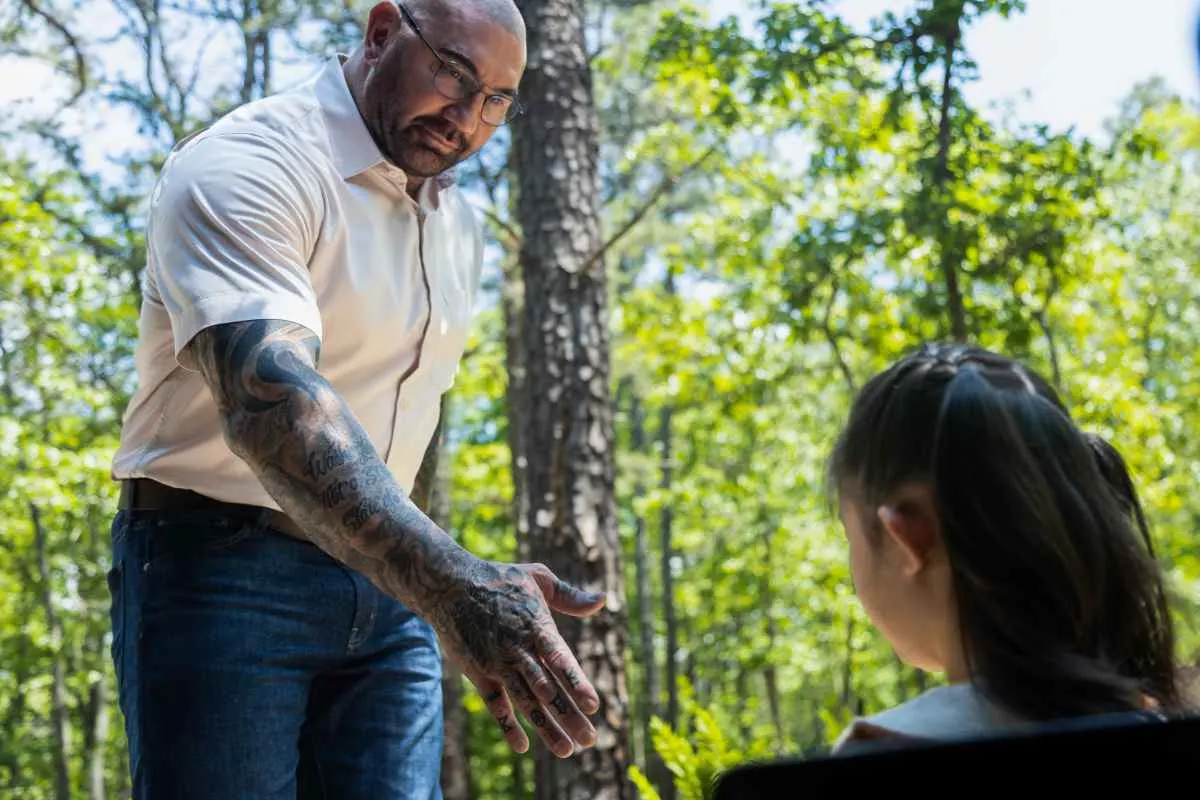
The changes from the book that Knock at the Cabin is based on are significant, but I see the reasoning behind them. It’s just that they don’t work, and the larger themes and meanings of the source material are lost.
A married couple, Eric (Jonathan Groff), and Andrew (Ben Aldridge) are taking a vacation with their daughter, Wen (Kristen Cui). In flashback, we learn the trials, struggles, and love that the members of this family has for each other, and we are instantly on their side. But we also have empathy for the strange people who show up at their vacation cabin, led by Leonard (Dave Bautista).

These four people, from different walks of life, are tormented by visions of the world ending, and of a god that requires a sacrifice to save humanity. Eric and Andrew must willingly kill a member of their family, or destruction will follow. At first, it seems like Leonard and the others are under some mass delusion, but events begin that suggest that they may be right, and that the apocalypse is indeed coming.
Let’s examine what does work – across the board, these performances are fantastic, and Dave Bautista is in rare form, and does incredible work. Leonard, a school teacher, has empathy and kindness within him, but his visions have compelled him to violence, a violence he absolutely does not want to commit.
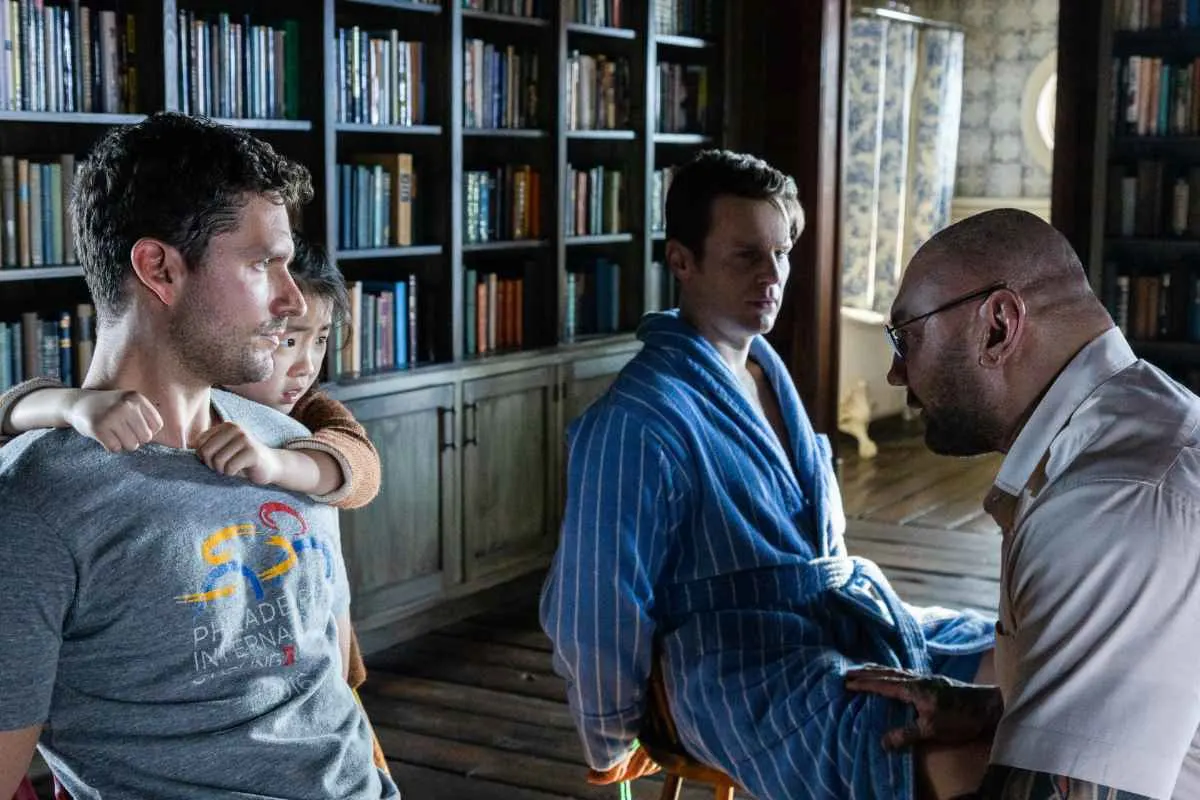
I said in my Glass Onion review that Bautista may be the best actor to come out of wrestling, and his work here just confirms it. With the arc that his career is on, it would not surprise me if he won an Oscar someday.
Rupert Grint, Nikki Amuka-Bird, and Abby Quinn are also very strong. Jonathan Groff and Ben Aldridge are also quite good as the loving husbands, and as events escalate, Groff’s Eric begins to question the reality while Aldridge’s Andrew rages, so certain that this is a retaliation instead of a sacrifice.
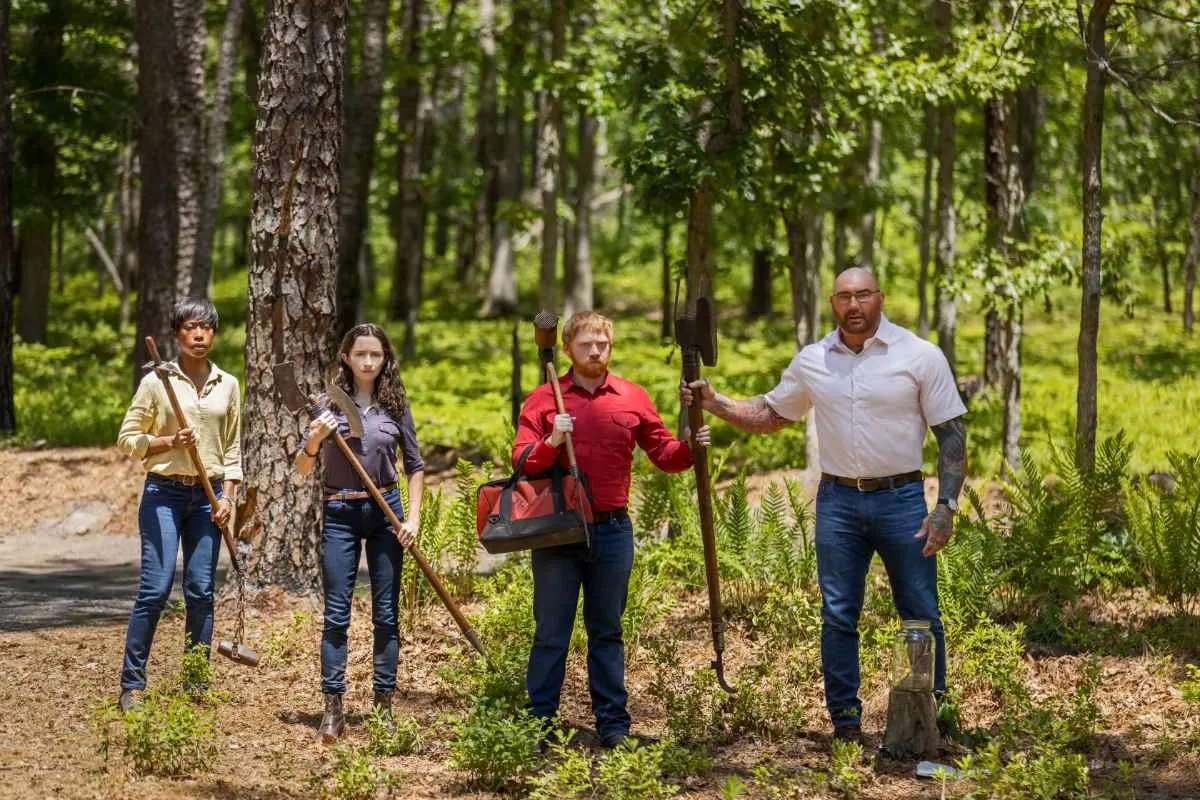
But the film lacks any kind of creative ambiguity, and doesn’t give the audience much room to play with the story. Perhaps Shyamalan is making a commentary on the nature of shared delusion and how easily people can be swayed into betraying their own belief systems, but it’s muddled.
But what is probably the film’s biggest flaw is that Knock at the Cabin feels like Shyamalan is afraid – afraid of offense, afraid of being too direct at times, and at other times afraid of confusing its audience.
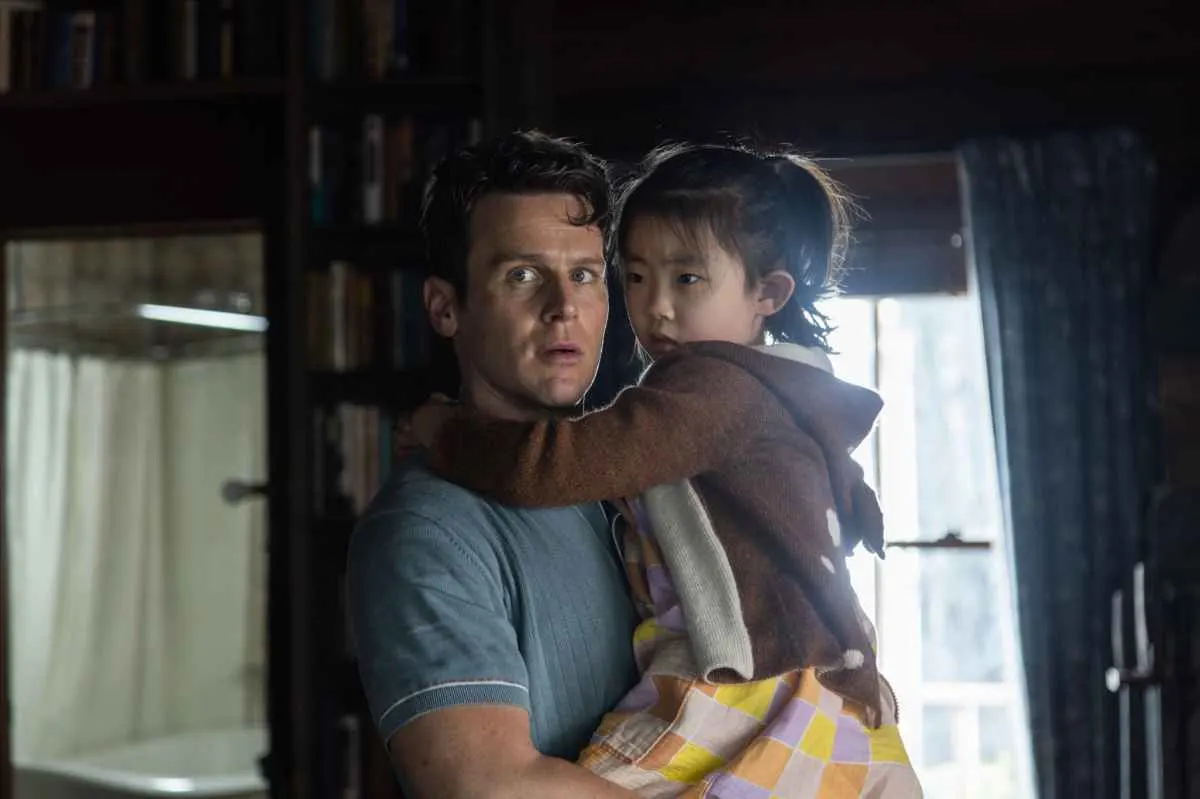
What made me most angry is that Eric and Andrew, as compelling as they are and with such good performances from Groff and Aldridge, are never allowed to show us real passion.
They feel neutered, especially in Knock at the Cabin‘s most climactic moments, as if the studio and the filmmakers were afraid to really show us what two people in love at the end of the world would do. They don’t behave, in those final moments, like most of us would, and that feels like cowardice from the filmmakers.
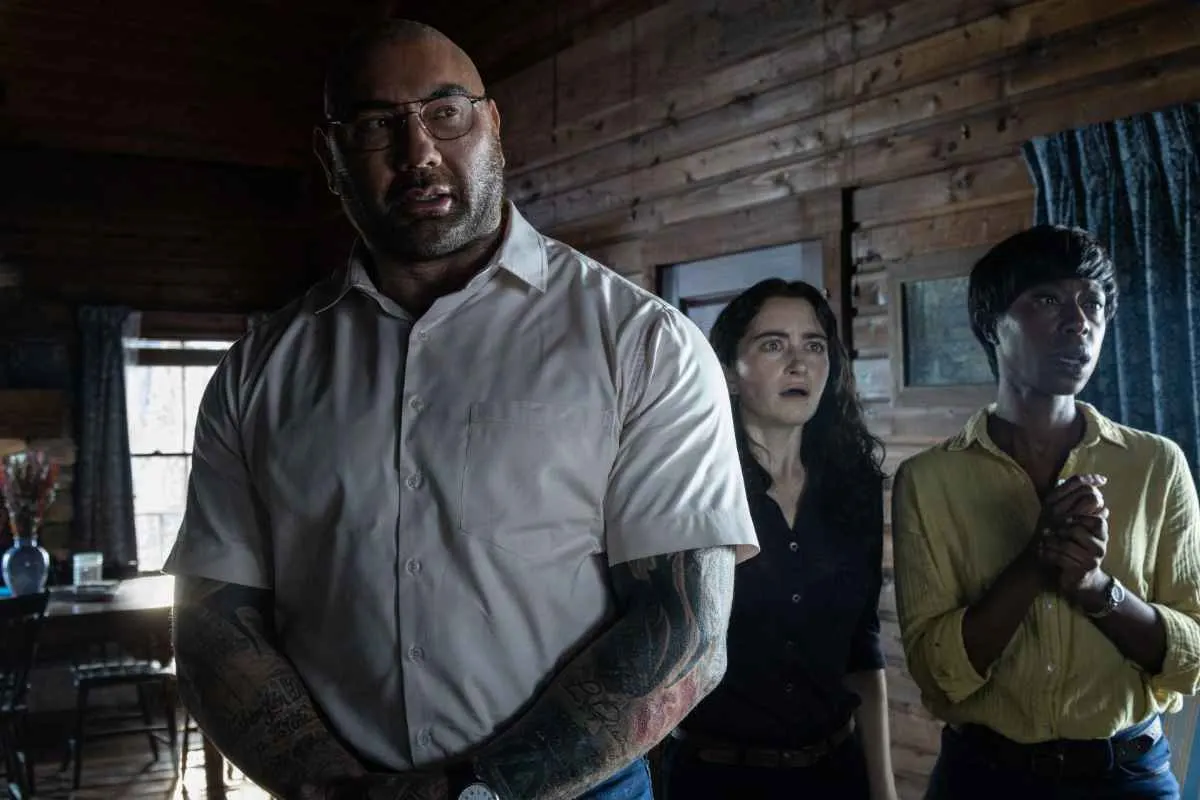
I almost want to chop the last 20 minutes off Knock at the Cabin and write my own ending to the movie. I wish I could. But since I can’t, I have to review the movie in front of me, and while Knock at the Cabin starts strong, it cannot sustain the energy of its first two acts.
It’s a shame, because there were moments when I was thinking that this could, had it been given a bit more attention and time, been better than The Sixth Sense. While there is a lot to praise about Knock at the Cabin, it does not achieve grace where it counts, and that’s the real twist.

KNOCK AT THE CABIN REVIEW SCORE: 6 OUT OF 10
Universal Pictures‘ Knock at the Cabin is now playing in theaters. The film is rated R for violence and language.
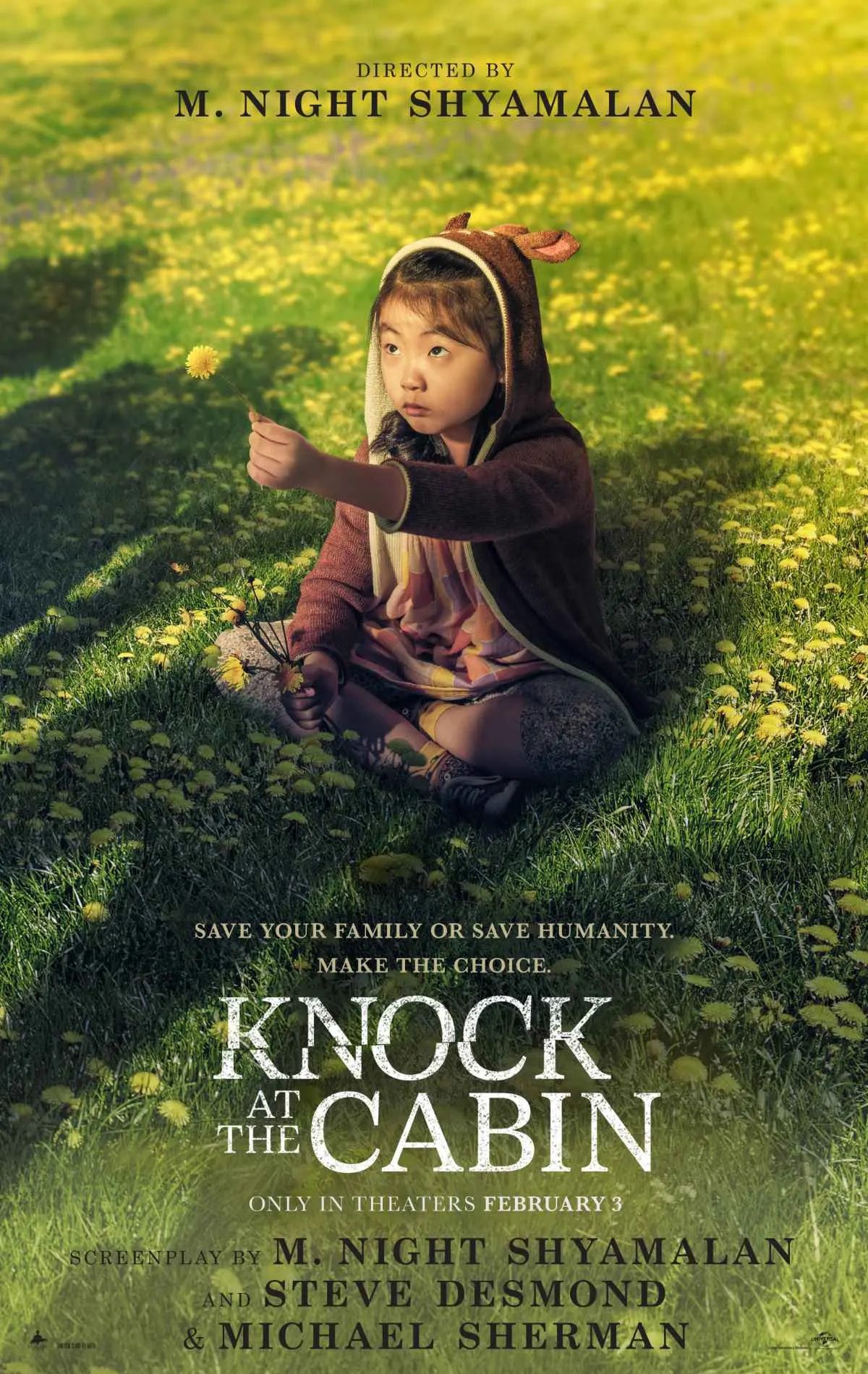

Alan Cerny has been writing about film for more than 20 years for such sites as Ain’t It Cool News, CHUD, Birth Movies Death, and ComingSoon. He has been a member of the Houston Film Critics Society since 2011. STAR WARS biased. Steven Spielberg once called Alan a “very good writer,” and Alan has the signed letter to prove it, so it must be true.